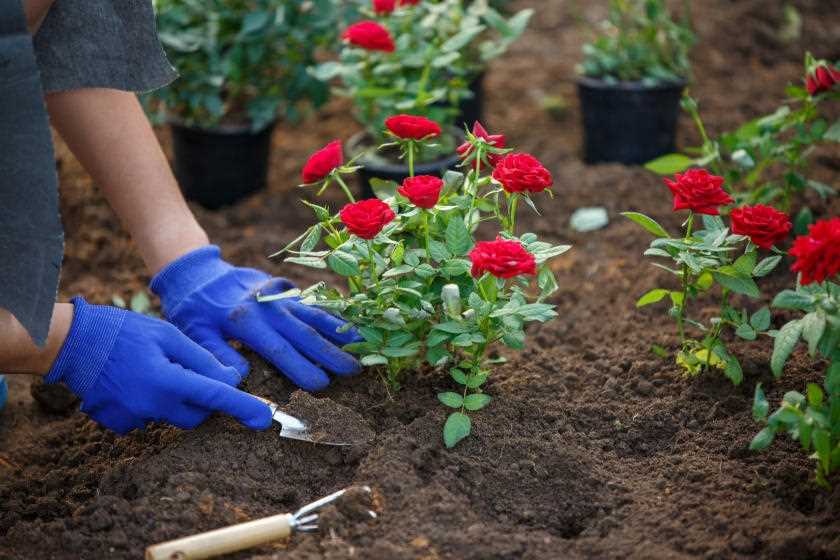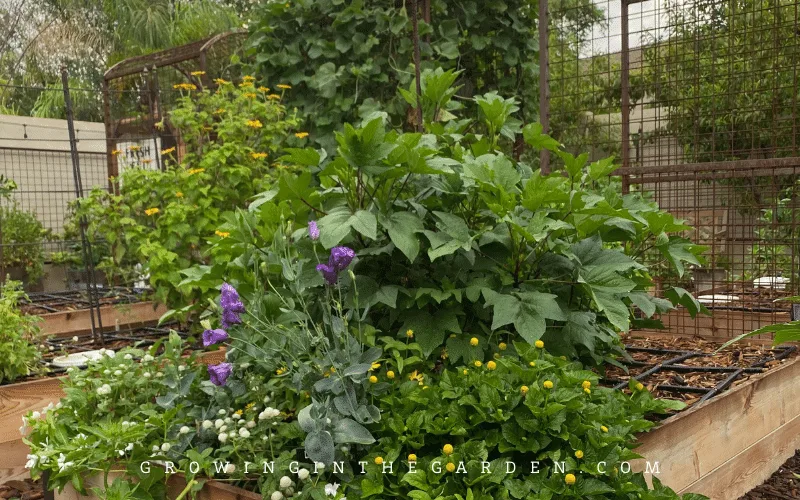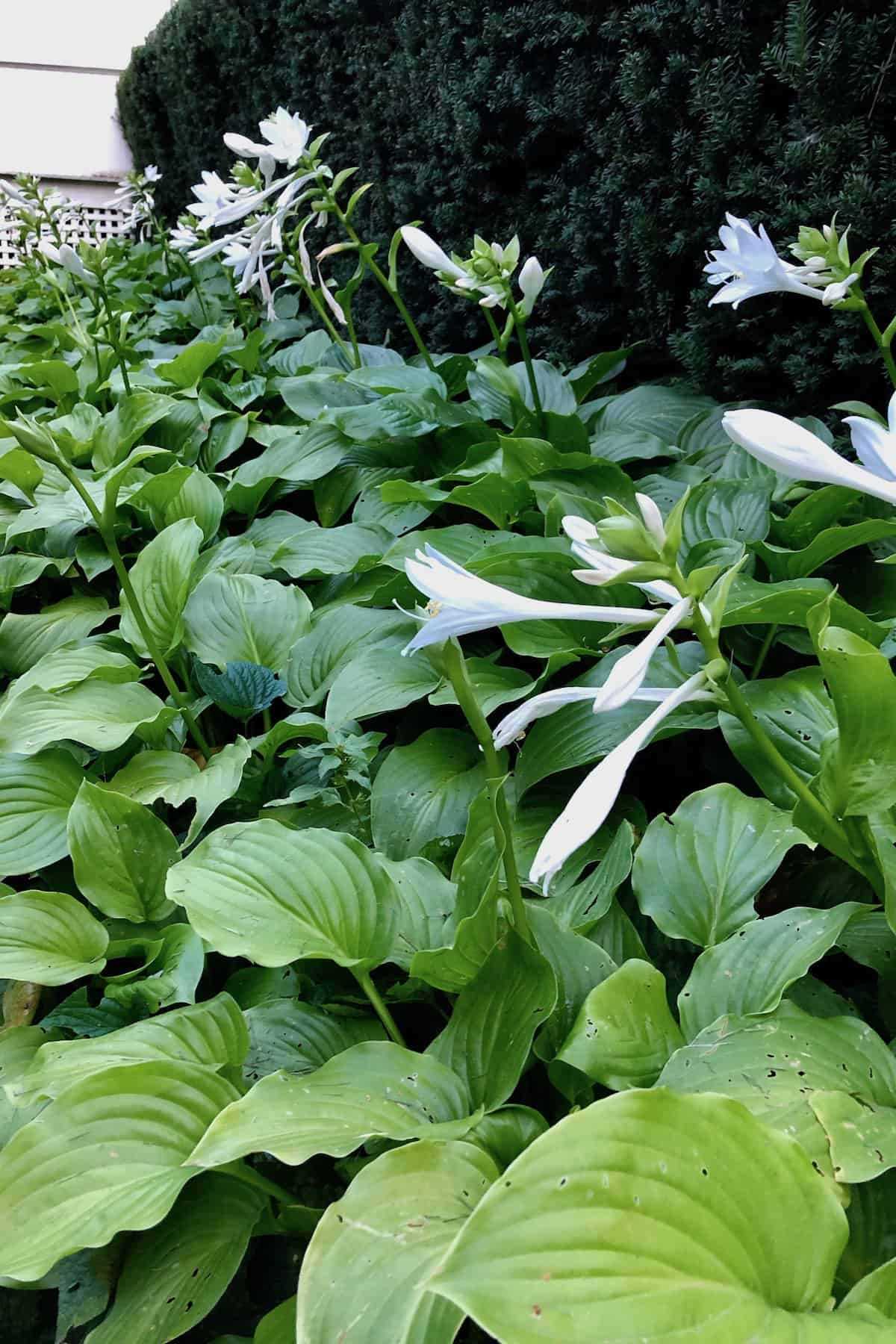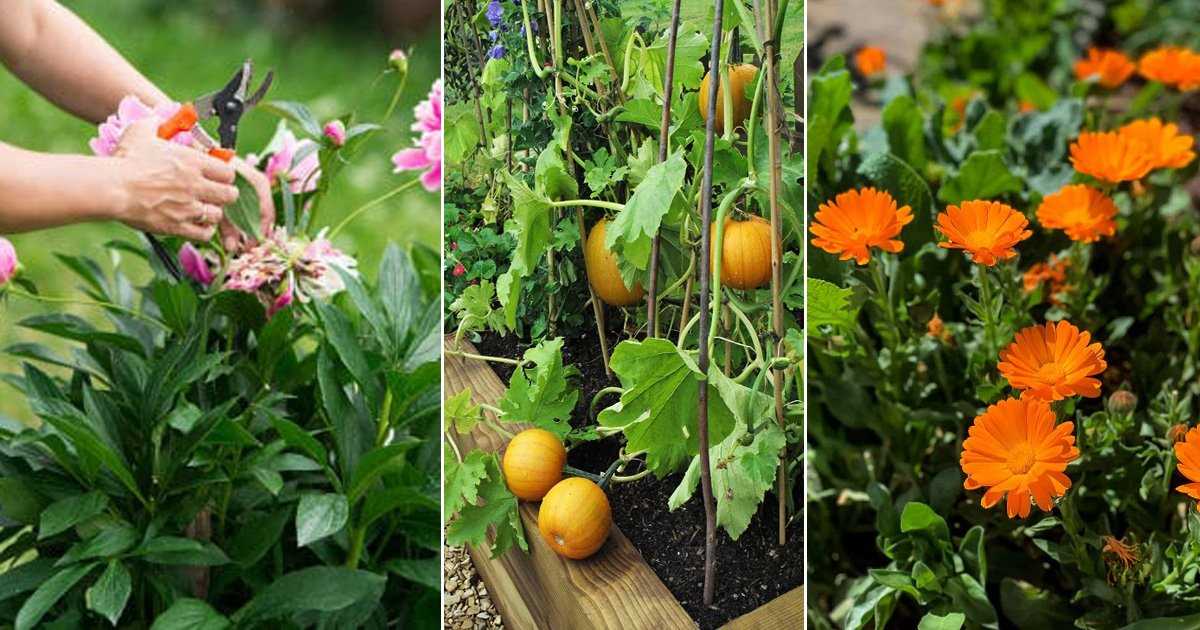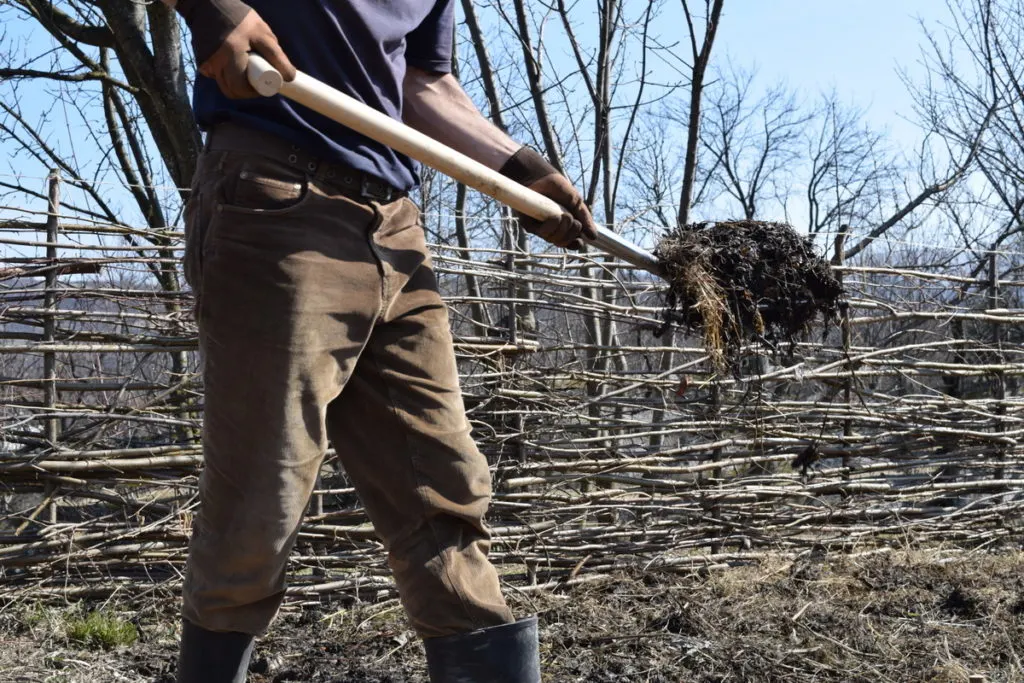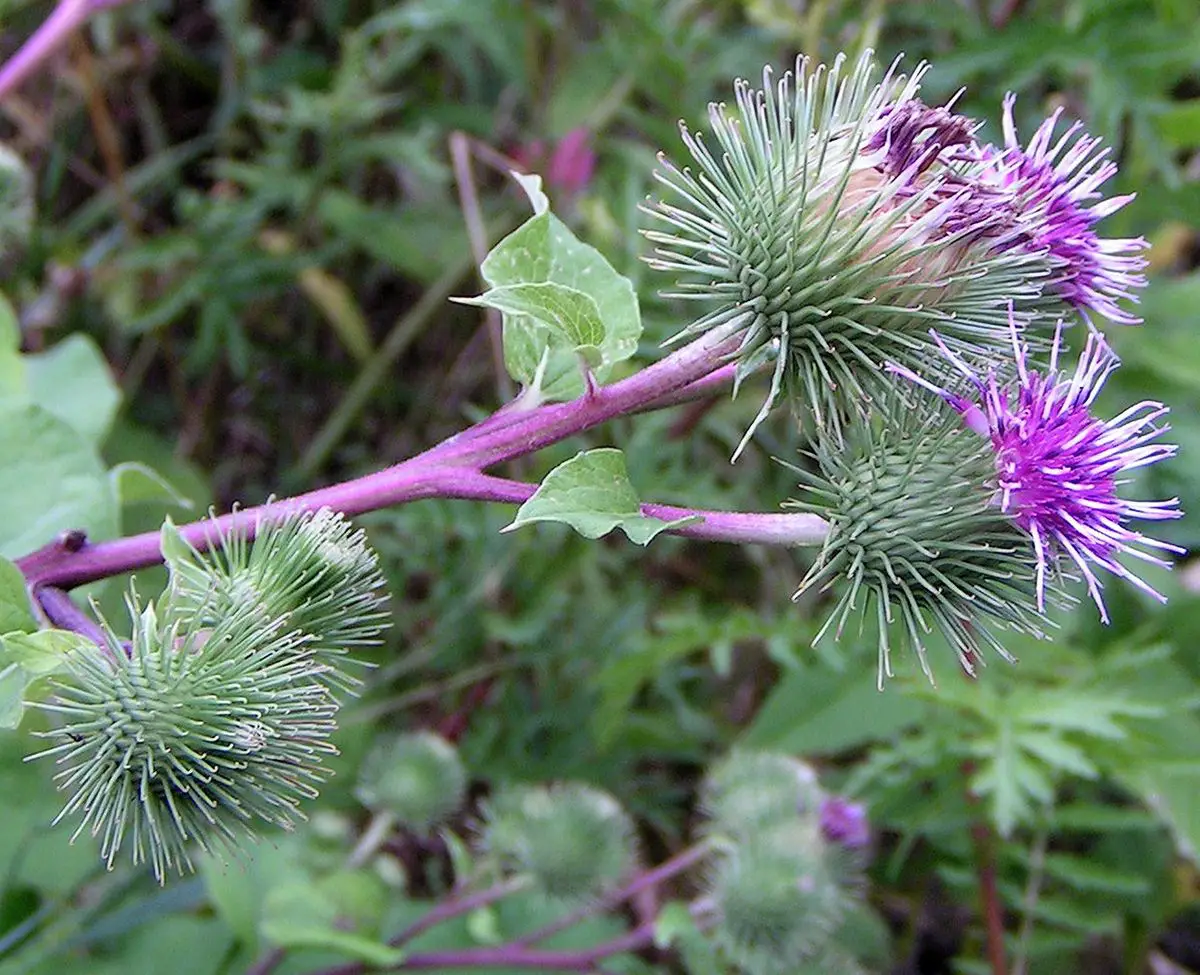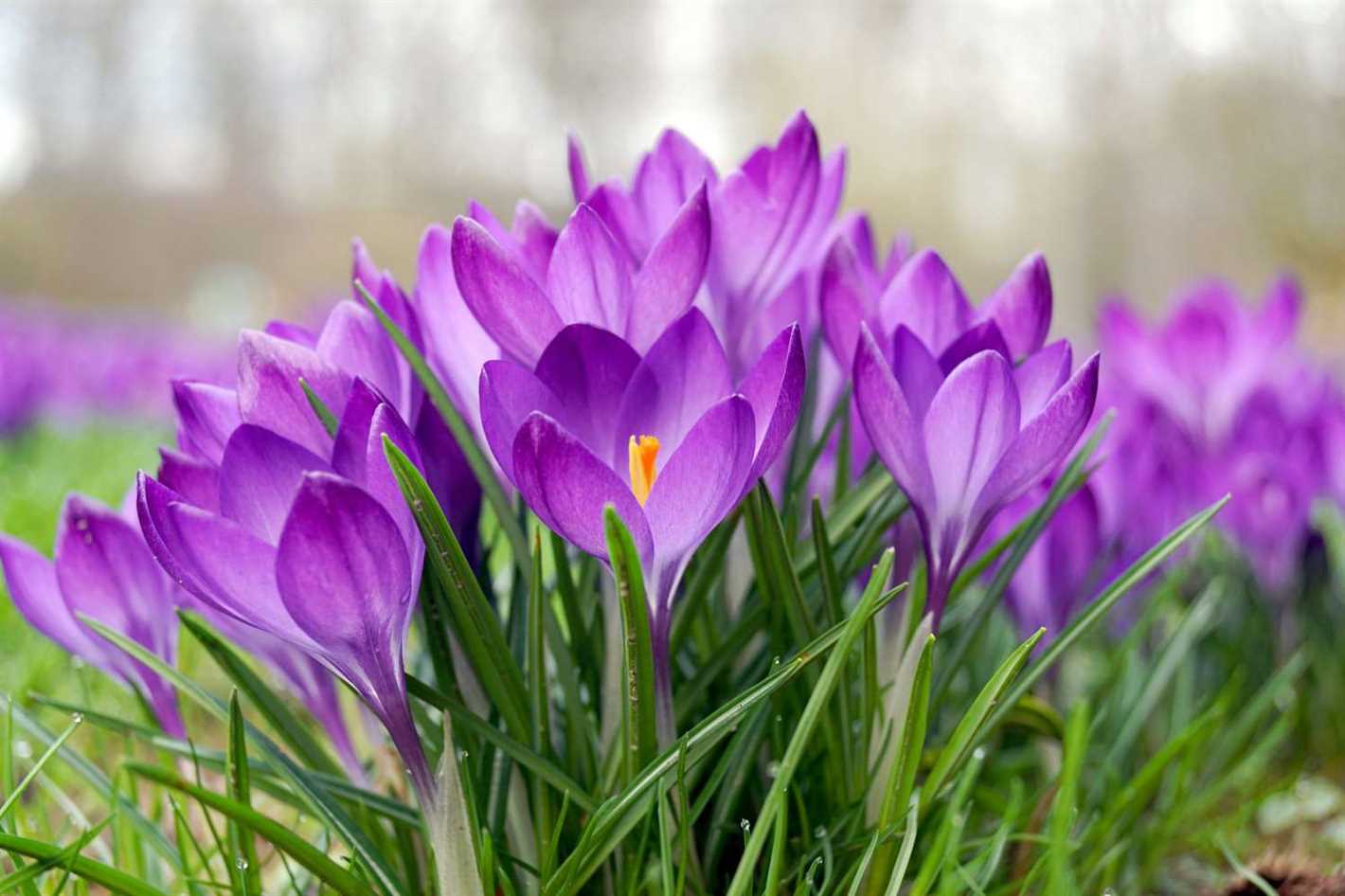- Overview of Nettle
- Properties of Nettle
- Uses of Nettle
- Medicinal Properties of Nettle
- Anti-inflammatory properties
- Antihistamine properties
- Diuretic properties
- Antioxidant properties
- Reduced blood sugar levels
- Good for skin health
- Health Benefits of Nettle
- Potential Side Effects of Nettle
- Nettle in Traditional Medicine
- 1. Allergies
- 2. Joint Pain and Arthritis
- 3. Urinary Tract Infections
- 4. Anaemia
- 5. Skin Conditions
- 6. Prostate Health
- Cultivation and Harvesting of Nettle
- 1. Growing Conditions
- 2. Planting
- 3. Growth and Maintenance
- 4. Harvesting
- Culinary Uses of Nettle
- Tea
- Soup
- Pesto
- Sauteed Greens
- Smoothies
- Bread and Pastries
- Nettle Beer
- Nettle Cheese
- Nettle Quiche
- Nettle Pasta
- Other Uses of Nettle
- Questions and Answers:
- What are the properties of nettle?
- Are there any contraindications for using nettle?
- How can nettle be cultivated?
- What are the uses of nettle?
- Is nettle safe for pregnant women to consume?
- Videos: Amazing Way to Use NETTLES to Improve Seedling Success
Nettle is a versatile herb that has been used for centuries for its various medicinal properties and culinary uses. Also known as Urtica dioica, nettle is native to Europe, Asia, North America, and North Africa. It is characterized by its stinging hairs, which can cause temporary skin irritation when touched.
Nettle is rich in vitamins, minerals, and antioxidants, making it a valuable addition to a healthy diet. It is particularly high in vitamins A and C, iron, calcium, and potassium. Nettle also contains compounds like flavonoids and phenolic acids, which have been shown to have anti-inflammatory and diuretic effects.
In traditional medicine, nettle has been used to treat a variety of conditions, including allergies, arthritis, and urinary tract infections. It has also been used topically to alleviate skin irritations and promote hair growth. Some studies have even suggested that nettle may have anticancer properties.
Before using nettle, it is important to be aware of any potential contraindications. Nettle should be avoided by individuals who are allergic to it or who have a history of kidney or bladder problems. It may also interact with certain medications, so it is important to consult a healthcare professional before using nettle as a supplement or remedy.
If you’re interested in cultivating nettle, it can be easily grown in your own garden. Nettle prefers moist soil and partial shade, and can be propagated through seeds or root divisions. However, be cautious when handling nettle plants, as their stinging hairs can cause skin irritation. Wearing gloves and protective clothing is recommended.
In conclusion, nettle is a plant that offers a wide range of health benefits and culinary uses. From its rich nutritional profile to its potential medicinal properties, nettle is a versatile herb that deserves a place in your kitchen and garden. However, it’s important to be aware of any contraindications and to use nettle responsibly. With the right precautions, nettle can be a valuable addition to your holistic health routine.
Overview of Nettle
Nettle, also known as stinging nettle, is a perennial herbaceous plant that belongs to the family Urticaceae. It is native to Europe, Asia, and North Africa. Nettle is known for its stinging hairs that cause a temporary burning sensation when they come into contact with the skin.
Nettle has been used for centuries for its medicinal properties. It is rich in nutrients such as vitamins A, C, and K, as well as minerals like iron, calcium, and magnesium. Nettle also contains bioactive compounds, including flavonoids and phenolic acids, which have antioxidant and anti-inflammatory properties.
Properties of Nettle
Nettle has several properties that make it beneficial for health:
- Anti-inflammatory: Nettle has been traditionally used to reduce inflammation in conditions such as arthritis. The anti-inflammatory properties of nettle are attributed to its bioactive compounds, which help to reduce the production of inflammatory mediators in the body.
- Antioxidant: Nettle is rich in antioxidants that help to neutralize harmful free radicals in the body, protecting cells from oxidative damage. This can help reduce the risk of chronic diseases such as heart disease and cancer.
- Diuretic: Nettle is a natural diuretic, meaning it increases urine production. This can help with managing conditions such as edema and high blood pressure.
- Antihistamine: Nettle has antihistamine properties, which can help to relieve symptoms of allergies such as sneezing, itching, and nasal congestion.
Uses of Nettle
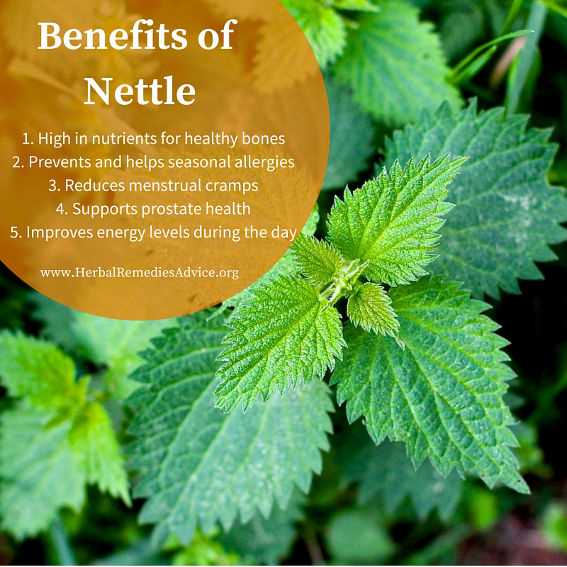
Nettle has a wide range of uses:
- Traditional medicine: Nettle has been used in traditional medicine to treat various ailments, including allergies, arthritis, urinary tract infections, and anemia.
- Culinary: Nettle leaves can be cooked and eaten or used as an ingredient in soups, stews, and teas. They have a rich, earthy flavor and are a good source of vitamins and minerals.
- Cosmetics: Nettle extract is used in skincare products for its anti-inflammatory and antioxidant properties. It is believed to help with conditions such as acne, eczema, and aging skin.
- Textiles: Nettle fibers are used to make fabric, similar to linen. The fibers are strong, lightweight, and have natural antibacterial properties.
- Gardening: Nettle leaves can be used to make a nutrient-rich compost or liquid fertilizer for plants. They are high in nitrogen and other nutrients that can improve soil fertility.
Medicinal Properties of Nettle
Nettle, also known as Urtica dioica, has been used for centuries for its medicinal properties. The herb is known for its high nutrient content and is rich in vitamins A, C, and K, as well as minerals such as calcium, iron, and potassium. Nettle also contains bioactive compounds including flavonoids, phenolic acids, and lignans, which contribute to its medicinal properties.
Anti-inflammatory properties
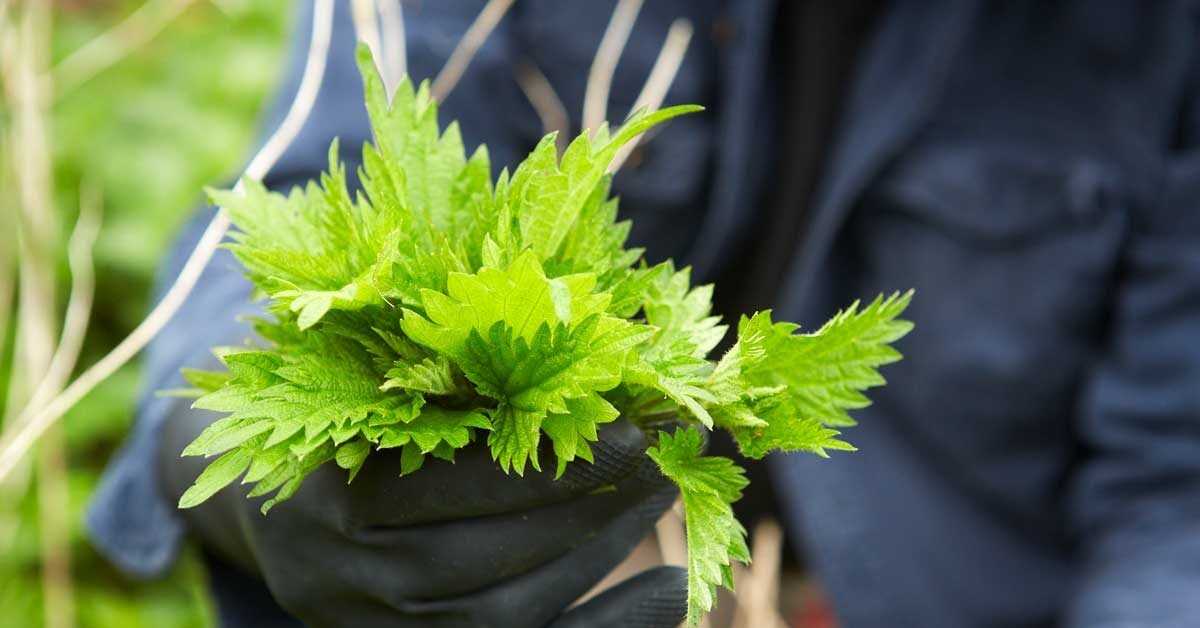
Nettle has anti-inflammatory properties that can help relieve symptoms of conditions such as arthritis and allergies. The herb contains compounds that inhibit the production of inflammatory cytokines, reducing inflammation in the body. This can help alleviate pain and swelling associated with inflammatory conditions.
Antihistamine properties
Nettle has antihistamine properties that can help reduce the symptoms of hay fever and other allergies. It contains compounds that block the release of histamine, a chemical produced by the body in response to allergens. By inhibiting histamine release, nettle can help alleviate sneezing, itching, and other allergy symptoms.
Diuretic properties
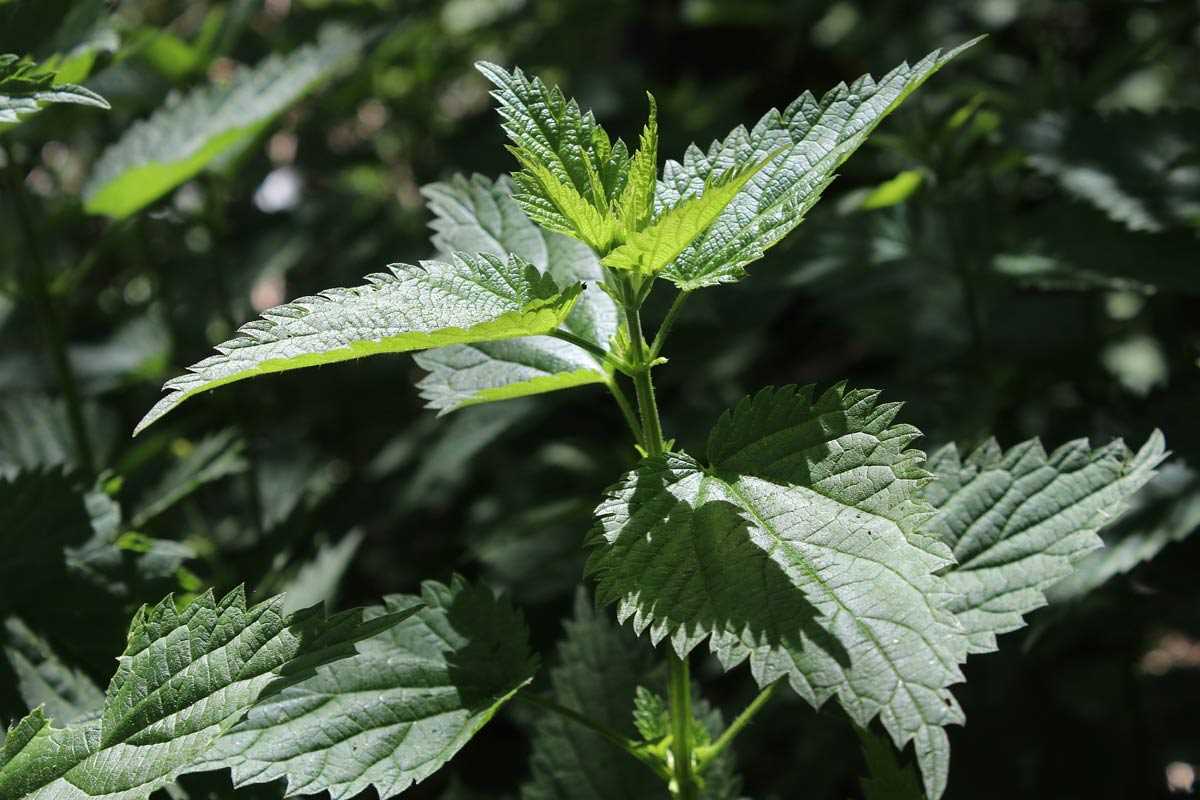
Nettle has diuretic properties, meaning it can increase urine production and help flush out toxins from the body. This can be beneficial for individuals with urinary tract infections or those who want to support kidney health. Nettle’s diuretic effect can also help reduce fluid retention and bloating.
Antioxidant properties
Nettle is a rich source of antioxidants, which are compounds that help protect cells from damage caused by free radicals. The herb’s antioxidant properties can help reduce oxidative stress and inflammation in the body. This may have a positive effect on overall health and may help prevent chronic diseases such as heart disease and certain types of cancer.
Reduced blood sugar levels
Nettle may help reduce blood sugar levels and improve glycemic control. Studies have shown that nettle extract can have a positive effect on insulin sensitivity and glucose metabolism. This makes nettle a potential natural treatment for type 2 diabetes or as a supportive therapy for managing blood sugar levels.
Good for skin health
Nettle can be beneficial for skin health when used topically. Its anti-inflammatory and antioxidant properties can help soothe irritated skin, reduce redness, and promote healing. Nettle can be used in skincare products or as a natural remedy for conditions like eczema, acne, and psoriasis.
| Medicinal Properties | Uses |
|---|---|
| Anti-inflammatory | Arthritis, allergies |
| Antihistamine | Hay fever, allergies |
| Diuretic | Urinary tract infections, fluid retention |
| Antioxidant | Overall health, chronic diseases prevention |
| Reduced blood sugar levels | Type 2 diabetes, glycemic control |
| Good for skin health | Eczema, acne, psoriasis |
Health Benefits of Nettle
Nettle, also known as Urtica dioica, has been used for centuries to treat various health conditions. This plant is rich in nutrients and bioactive compounds that offer numerous health benefits. Here are some of the key health benefits of nettle:
- Anti-inflammatory properties: Nettle contains compounds that have anti-inflammatory effects in the body. It may help reduce inflammation and alleviate symptoms of conditions such as arthritis and allergies.
- Allergy relief: Nettle is often used as a natural remedy for allergies. It can help reduce the production of histamine, a compound that causes allergic reactions. Consuming nettle or using it as a topical treatment may help relieve symptoms like sneezing, itching, and watery eyes.
- Urinary tract health: Nettle has diuretic properties, which means it can increase urine production and help flush out toxins from the body. This may support the health of the urinary tract and help prevent urinary tract infections.
- Hair and skin health: Nettle is commonly used in hair and skincare products due to its beneficial effects on the scalp and skin. It may help reduce dandruff, promote hair growth, and improve the health and appearance of the skin.
- Lower blood pressure: Nettle may have a positive effect on blood pressure. Some studies suggest that nettle extract can help lower blood pressure levels. However, more research is needed in this area to fully understand its mechanisms.
It’s important to note that while nettle has many potential health benefits, it may also cause side effects or interact with certain medications. It’s best to consult with a healthcare professional before using nettle as a medicinal treatment.
Potential Side Effects of Nettle
While nettle is generally considered safe for most people when used in appropriate amounts, there are some potential side effects that you should be aware of:
- Allergic reactions: Some individuals may be allergic to nettle and may experience symptoms such as itching, rash, hives, or difficulty breathing. If you have a known allergy to plants in the Urticaceae family, it is best to avoid nettle.
- Topical skin irritation: Nettle leaves have tiny hairs that can cause irritation and a stinging sensation when they come into contact with the skin. This can sometimes lead to a rash or blisters.
- Stomach upset: Consuming large amounts of nettle may cause stomach upset, including symptoms like nausea, diarrhea, or stomach cramps. It is important to consume nettle in moderation.
- Interactions with medications: Nettle may interact with certain medications, including blood thinners, diabetes medications, and anti-inflammatory drugs. If you are taking any medication, it is best to consult with your healthcare provider before using nettle as a supplement or remedy.
It is important to note that pregnant and breastfeeding women should avoid using nettle, as its effects on these individuals have not been extensively studied.
If you experience any of these side effects after using nettle, it is important to discontinue use and seek medical attention if necessary.
Nettle in Traditional Medicine
Nettle has been used in traditional medicine for centuries. It is known for its various health benefits and has been commonly used to treat a wide range of ailments. Here are some of the ways nettle is used in traditional medicine:
1. Allergies
Nettle is often utilized as a natural remedy for allergies, including hay fever. It contains compounds that help to reduce the production of histamine, which is responsible for allergy symptoms. Drinking nettle tea or taking nettle supplements may help alleviate symptoms such as sneezing, itching, and nasal congestion.
2. Joint Pain and Arthritis
The anti-inflammatory properties of nettle make it useful for relieving joint pain and arthritis symptoms. Applying nettle topically in the form of creams or ointments may help reduce swelling and pain. Additionally, drinking nettle tea or taking nettle supplements might help reduce inflammation and alleviate symptoms associated with arthritis.
3. Urinary Tract Infections
Nettle has diuretic properties, which means it can increase urine production and help flush out bacteria from the urinary tract. This makes it a useful herbal remedy for urinary tract infections. Drinking nettle tea or taking nettle supplements may help relieve symptoms and promote healing.
4. Anaemia
Nettle is rich in iron, making it beneficial for individuals with anaemia. Iron is a vital component of red blood cells and is necessary for carrying oxygen throughout the body. Nettle tea or supplements can be included in the diet to help increase iron levels and alleviate symptoms of anaemia.
5. Skin Conditions
Nettle has been used to treat various skin conditions, including eczema and acne. Its anti-inflammatory and antihistamine properties may help reduce redness, itching, and irritation associated with these skin conditions. Applying nettle topically in the form of creams or ointments can help soothe the skin and promote healing.
6. Prostate Health
Nettle root extract is often used to alleviate symptoms of benign prostatic hyperplasia (BPH), which is a non-cancerous enlargement of the prostate gland. It works by inhibiting the production of certain hormones that contribute to prostate enlargement. Taking nettle supplements may help reduce urinary symptoms associated with BPH.
While nettle has a long history of use in traditional medicine, it is essential to consult a healthcare professional before using it for any medical condition. They can provide guidance on the appropriate dosage and potential interactions with medications or existing health conditions.
Cultivation and Harvesting of Nettle
Nettle is a perennial plant that is relatively easy to grow and cultivate. It can be grown both from seeds and root cuttings. Here are some key points to consider when cultivating and harvesting nettle:
1. Growing Conditions
- Nettle prefers rich, moist soil and partial shade.
- It can tolerate a wide range of soil types but thrives in nutrient-rich soil.
- Ensure proper drainage to prevent waterlogging.
- Nettle can be grown in pots or directly in the ground.
2. Planting
- If starting from seeds, sow them indoors 6-8 weeks before the last frost. Transplant them outdoors in early spring.
- If using root cuttings, plant them in early spring or fall. Dig a hole and place the cuttings about 2 inches deep, spacing them 12-18 inches apart.
- Water the plants regularly, especially during dry spells.
3. Growth and Maintenance
- Nettle plants grow vigorously and can reach heights of 2-6 feet.
- Keep the plants well-mulched to retain moisture and suppress weeds.
- Monitor for pests and diseases, such as aphids and powdery mildew. Treat infestations as needed.
- Trim back the plants to encourage bushier growth and prevent them from becoming invasive.
4. Harvesting
- The young leaves of nettle are most commonly harvested for culinary and medicinal purposes.
- Wear gloves when handling the plants, as they have stinging hairs.
- Harvest the leaves by picking them from the top of the plant, avoiding the lower leaves.
- For continuous harvest, only harvest a portion of the leaves, allowing the rest to grow back.
- Dry the harvested leaves in a well-ventilated area before storing them.
By following these cultivation and harvesting practices, you can enjoy a bountiful supply of nettle for various uses.
Culinary Uses of Nettle
Nettle is a versatile herb that can be used in a variety of culinary preparations. Here are some popular uses of nettle in cooking:
Tea
Nettle leaves can be steeped in hot water to make a soothing tea. Nettle tea has a rich, earthy flavor and is often enjoyed for its potential health benefits, including its high mineral content.
Soup
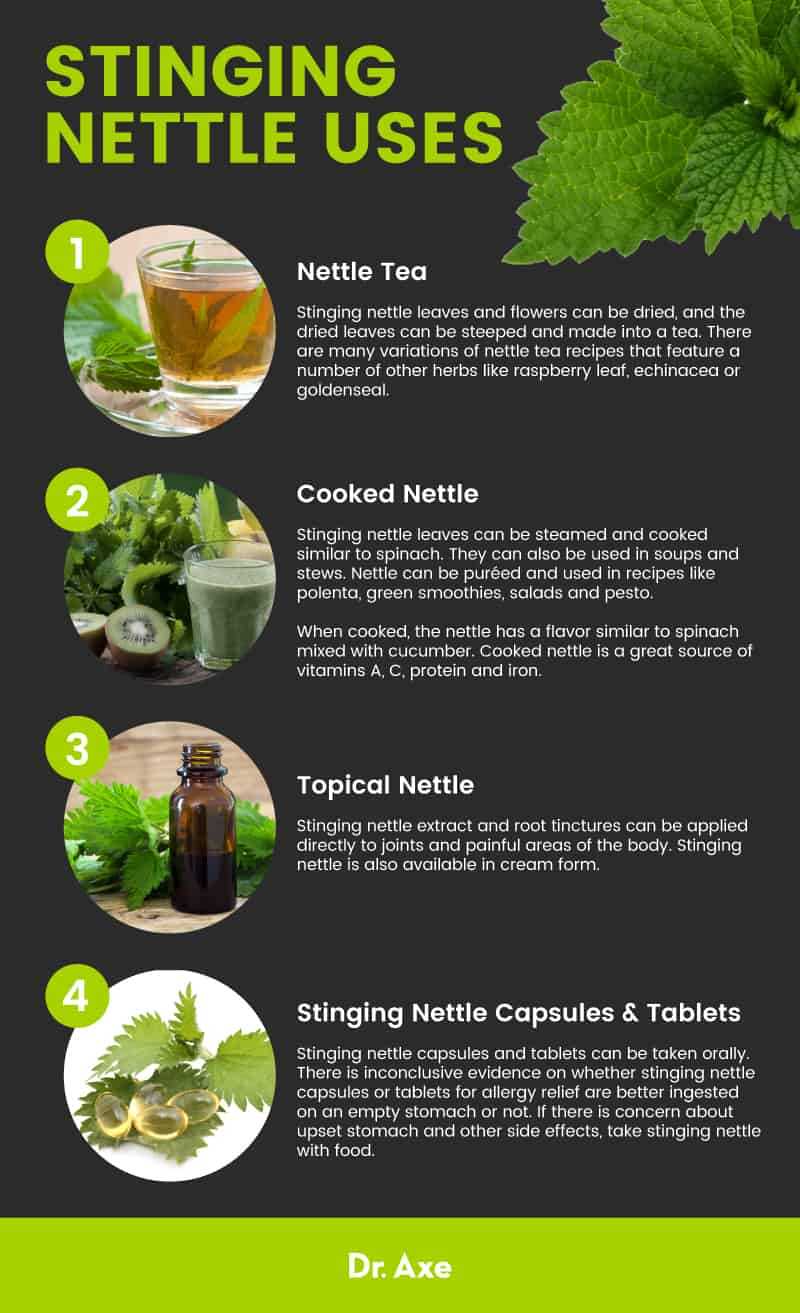
Nettle can be added to soups and broths to give them a unique flavor and boost their nutritional content. The leaves should be blanched or steamed before adding them to the soup to remove the stinging hairs.
Pesto
Nettle can be used as an alternative to basil in pesto recipes. Simply blanch or steam the nettle leaves, then blend them with garlic, nuts, cheese, and oil to make a delicious nettle pesto.
Sauteed Greens
Nettle leaves can be sautéed with olive oil and garlic to make a tasty side dish. The stinging hairs will be deactivated during the cooking process.
Smoothies
Nettle can be added to smoothies for an extra nutritional boost. Simply blanch or steam the leaves before blending them with your favorite fruits and vegetables.
Bread and Pastries
Nettle can be incorporated into bread and pastry recipes to add a unique flavor and boost their nutritional content. Simply blanch or steam the leaves before adding them to the dough.
Nettle Beer
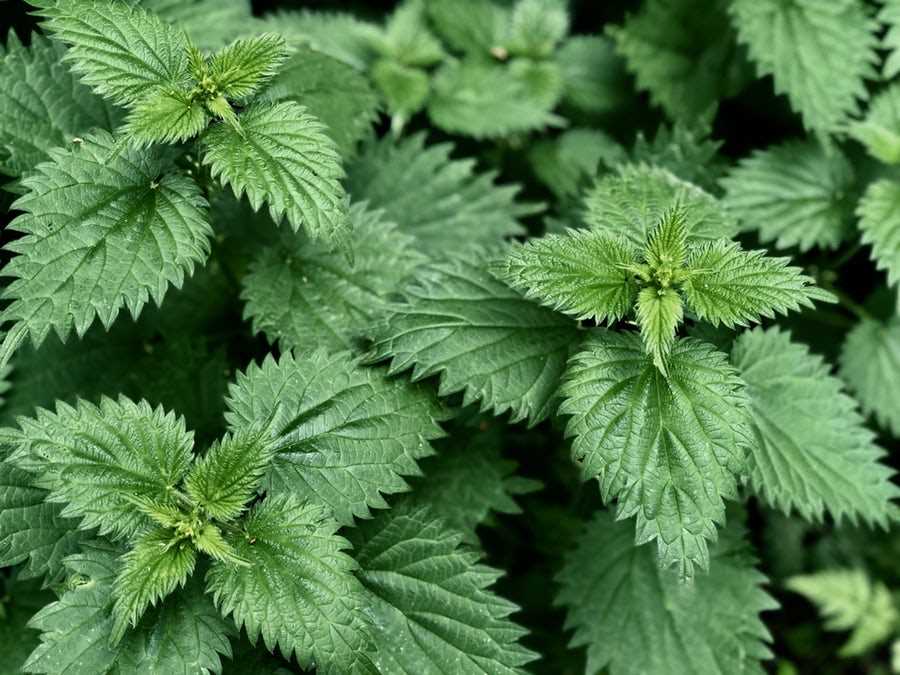
Nettle can be used to brew a refreshing and flavorful beer. The leaves are steeped in water with added sugar, yeast, and flavorings to create a fermented beverage.
Nettle Cheese
Nettle can be used to flavor cheese. The leaves are usually blanched or steamed before being added to the cheese curds.
Nettle Quiche
Nettle can be used as an ingredient in quiches and savory pies. Blanch or steam the leaves before adding them to the filling mixture.
Nettle Pasta
Nettle can be used to make homemade pasta. Blanch or steam the leaves before pureeing them and adding them to the pasta dough.
These are just a few examples of how nettle can be used in culinary preparations. The possibilities are endless, and nettle’s unique flavor and nutritional profile make it a great addition to many dishes.
Other Uses of Nettle

Nettle, with its numerous health benefits, is not only used for medicinal and culinary purposes but also finds application in various other fields. Some of the other uses of nettle include:
- Textiles: Nettle fiber can be extracted from the stems of nettle plants and used to make textiles. This fiber, known as nettle cloth, has been used for centuries to create clothing, especially in regions where cotton is not readily available.
- Tea: Nettle leaves can be dried and used to make nettle tea. This herbal tea is known for its ability to detoxify the body, improve digestion, and boost the immune system.
- Animal Feed: Nettle can be fed to livestock as a supplementary feed. It is rich in nutrients and can provide valuable vitamins and minerals to animals.
- Garden Fertilizer: Nettle leaves can be used to make a natural fertilizer. By soaking nettle leaves in water, a nutrient-rich liquid can be created that can be used to fertilize plants in the garden.
- Natural Dyes: Nettle plants can be used to create natural dyes. The leaves and stems of nettle plants can give fabrics a green or yellow color, depending on the method used.
These various uses of nettle highlight its versatility and usefulness in different industries. From textiles to herbal remedies, nettle continues to be a valuable plant with a wide range of applications.
Questions and Answers:
What are the properties of nettle?
Nettle has many properties, including anti-inflammatory, analgesic, diuretic, and antioxidant properties. It is also rich in vitamins and minerals.
Are there any contraindications for using nettle?
Yes, there are some contraindications for using nettle. It may interact with certain medications, such as blood thinners, diuretics, and diabetes medications. It may also cause allergic reactions in some individuals.
How can nettle be cultivated?
Nettle can be cultivated by planting its seeds or by dividing the roots of an existing plant. It grows best in moist and nutrient-rich soil, and requires regular watering.
What are the uses of nettle?
Nettle has many uses. It can be used to treat conditions such as arthritis, allergies, and urinary tract infections. It can also be used in cooking, as a tea, or in the form of a supplement.
Is nettle safe for pregnant women to consume?
While nettle is generally considered safe for consumption during pregnancy, it is always best to consult with a healthcare professional before using any herbal remedies.
